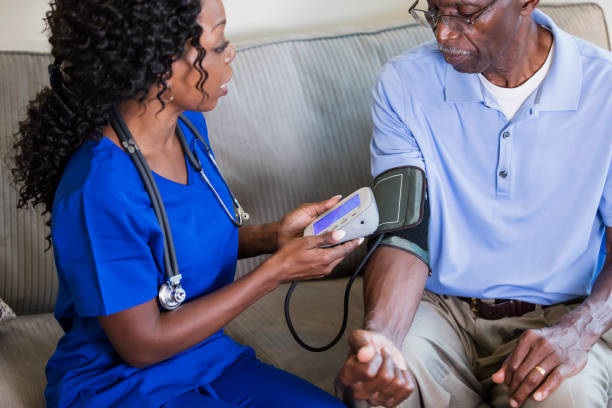 Beat hypertension and lower your blood pressure with simple lifestyle changes to protect yourself from this hidden health problem. According to research or other evidence, the following self-care steps may be helpful.
Beat hypertension and lower your blood pressure with simple lifestyle changes to protect yourself from this hidden health problem. According to research or other evidence, the following self-care steps may be helpful.
Quick Exercises that Lower High Blood Pressure
Several types of exercise can help lower blood pressure, including aerobic activities like walking, jogging, cycling, and swimming, as well as isometric exercises like wall squats and planks. Regular physical activity can help bring blood pressure down to safer levels.
Aerobic Exercise:
Walking: Brisk walking is a great way to get started, even short walks can have a positive impact.
Jogging:
Alternating jogging and walking can be a good way to gradually increase intensity.
Cycling:
Riding a bike, either indoors or outdoors, can be a low-impact and effective way to work out.
Swimming:
The water provides support, making it a good option for those with joint pain.
Dancing:
Dance classes like Zumba can be a fun way to get your heart rate up.
Hiking:
If you enjoy the outdoors, hiking is a great way to combine exercise with nature.
Rowing:
Rowing machines offer a full-body workout that’s gentle on the joints.
Isometric Exercises have also been proven to work.
Wall Squats:
These involve holding a squat position against a wall, engaging your leg muscles without moving.
Planks:
Planks involve holding a push-up position with your forearms on the floor, engaging your core.
9 Quick Ways to Erase High Blood Pressure
9. Take some CoQ10
Taking 100 mg a day of this powerful antioxidant may have a significant impact on your blood pressure after one to several months
8. Drink (a little) alcohol
Yes, you heard us correctly. According to a review of 15 studies, the less you drink, the lower your blood pressure will drop—to a point. A study of women at Boston’s Brigham and Women’s Hospital, for example, found that light drinking (defined as one-quarter to one-half a drink per day for a woman) may actually reduce blood pressure more than no drinks per day.
One “drink” is 12 ounces of beer, 5 ounces of wine, or 1.5 ounces of spirits to achieve the goal of low blood pressure. Other studies have also found that moderate drinking—up to one drink a day for a woman, two for a man—can lower risks of heart disease.
7. Take a Breath
Slow breathing and meditative practices such as qigong, yoga, and tai chi decrease stress hormones, which elevate renin, a kidney enzyme that raises blood pressure. Try 5 minutes in the morning and at night for low blood pressure. Inhale deeply and expand your belly. Exhale and release all of your tension. (Try these stress-busting yoga poses to relieve tension.)
6. Get some dark chocolate in your life
Dark chocolate varieties contain flavanols that make blood vessels more elastic and increase the chances of low blood pressure. In one study, 18% of patients who ate it every day saw blood pressure decrease. Have half an ounce daily, and make sure it contains at least 70% cocoa.
5. Gargle with garlic
600 to 900 mg a day of a standardized garlic extract can improve heart and blood vessel health, and also has a mild blood pressure–lowering effect
4. Read the Labels
Avoid using too much table salt, limit salty fast foods, and read labels to find low-sodium foods in your grocery store. Labels on foods is one of the sneakiest ways salt gets into your food. It’s right there on the label, but many of us don’t take the time to read it. Trust me, if you just turn over the package and read it before you buy it, it will save your life.
3. Take minerals
Supplements of calcium (800 to 1,500 mg a day) and magnesium (350 to 500 mg a day) may be helpful. These recommendations are not comprehensive and are not intended to replace the advice of your doctor or pharmacist. Continue reading the full hypertension article for more in-depth, fully-referenced information on medicines, vitamins, herbs, and dietary and lifestyle changes that may be helpful.
2. Lose a little weight
I know what you’re thinking, we know that already, right? Eat right and exercise, right? Well, duh! It actually works! So if you find yourself a little overweight (5 to 25 pounds) begin to exercise a little more with just a 20-minute walk every day for a week then boost it up to 30 minutes and cut back on your calories. You’ll see what can happen.
1. Get support
It’s medically proven time and time again that supportive family and friends can help improve your health. They may encourage you to take care of yourself, drive you to the doctor’s office or embark on an exercise program with you to keep your blood pressure low.
If you find you need support beyond your family and friends, consider joining a support group.









